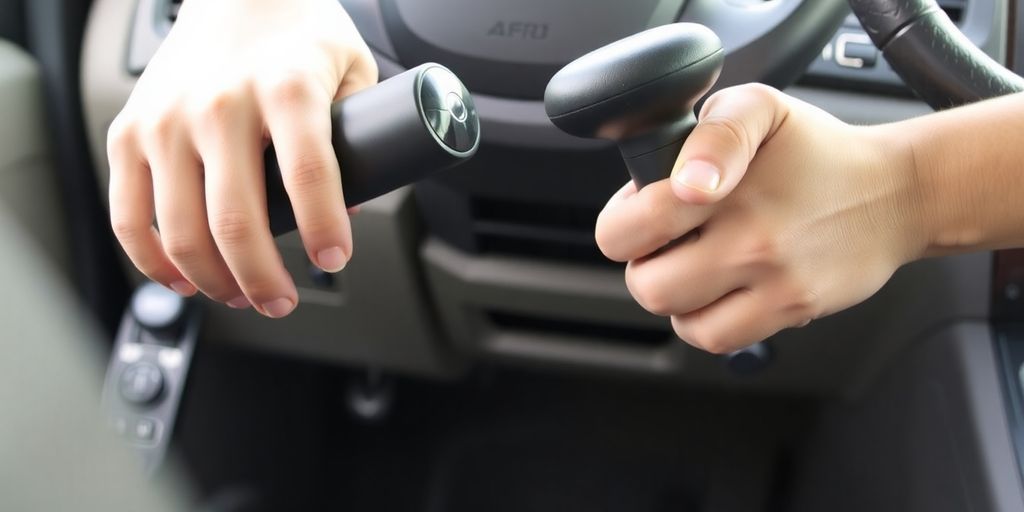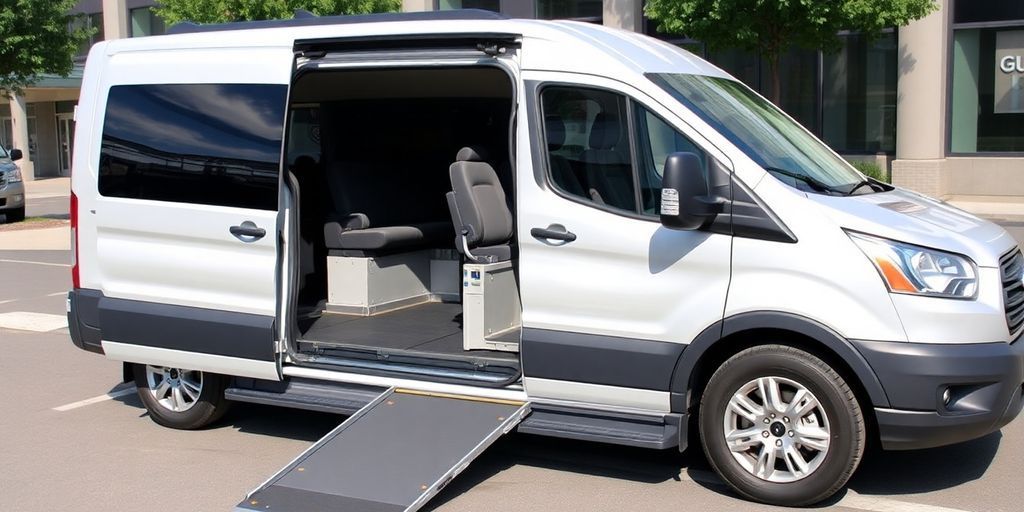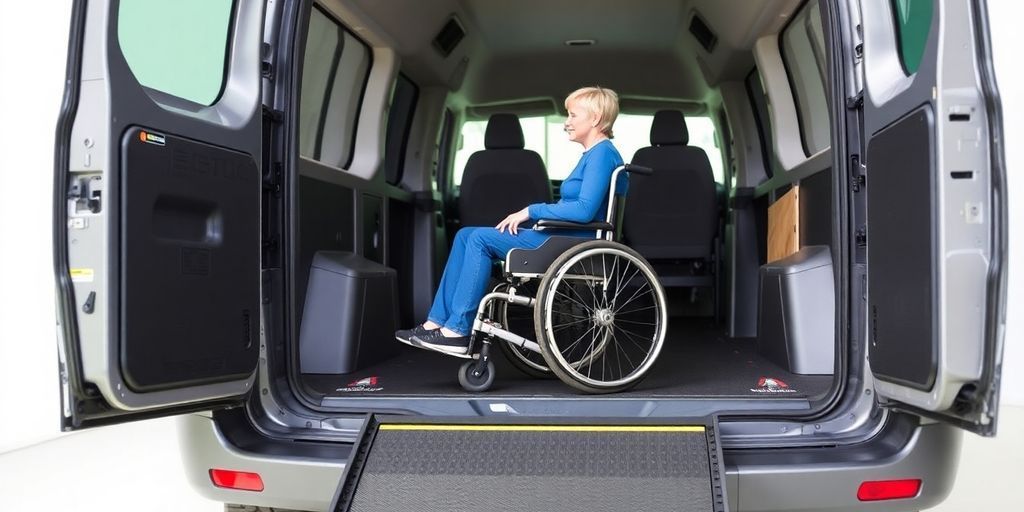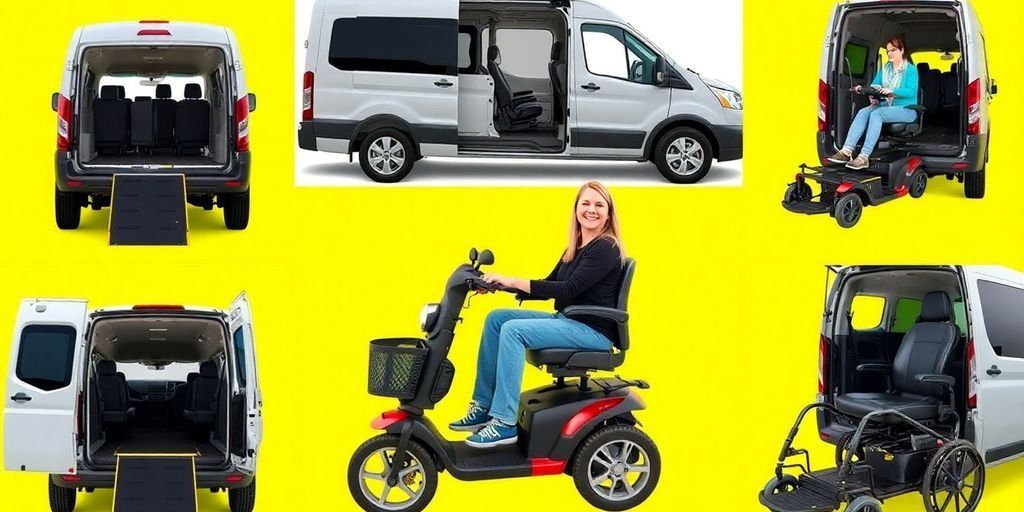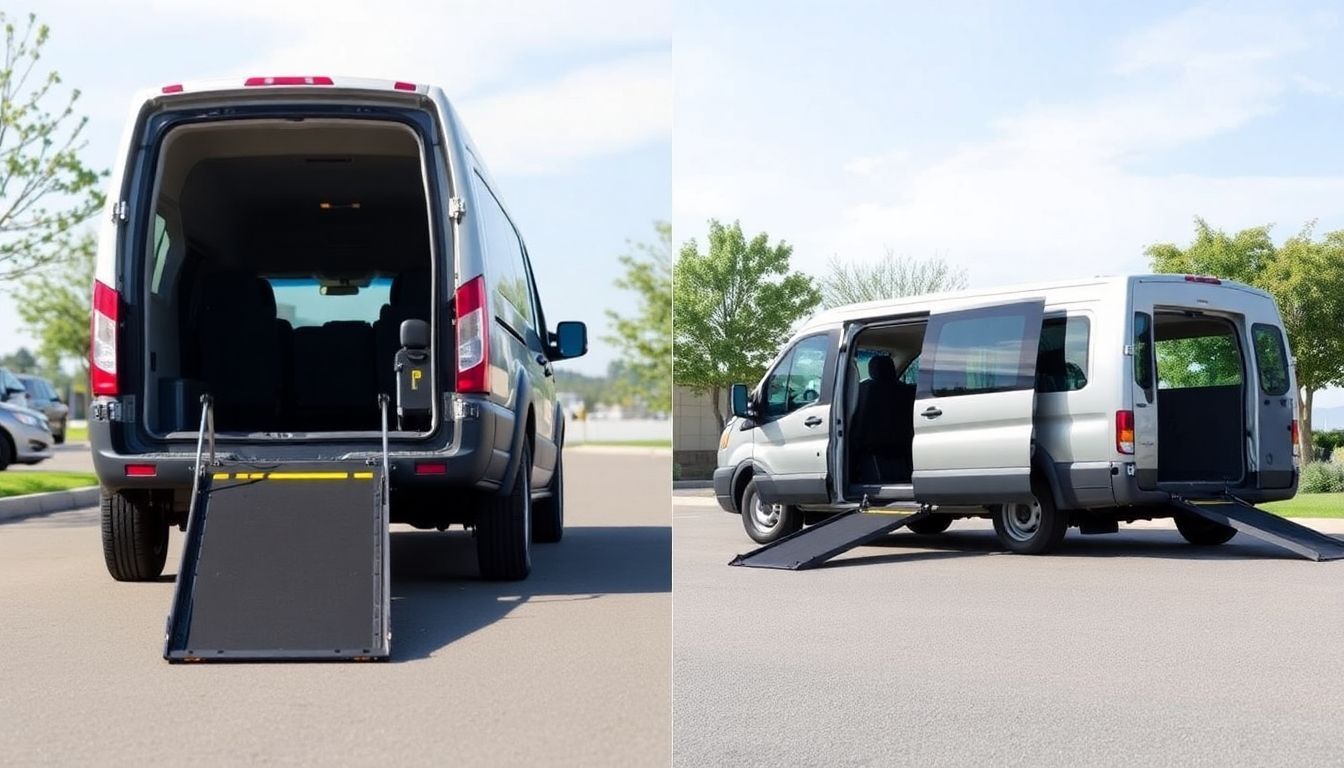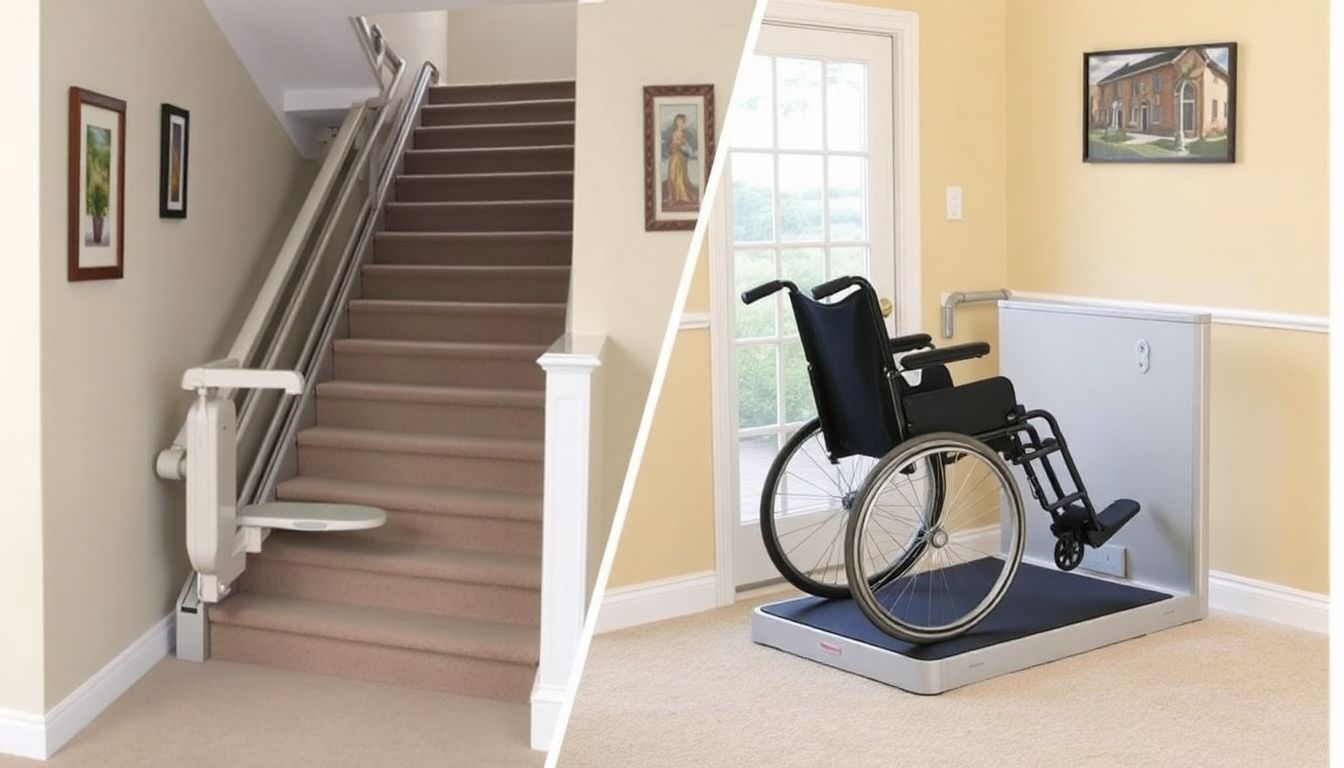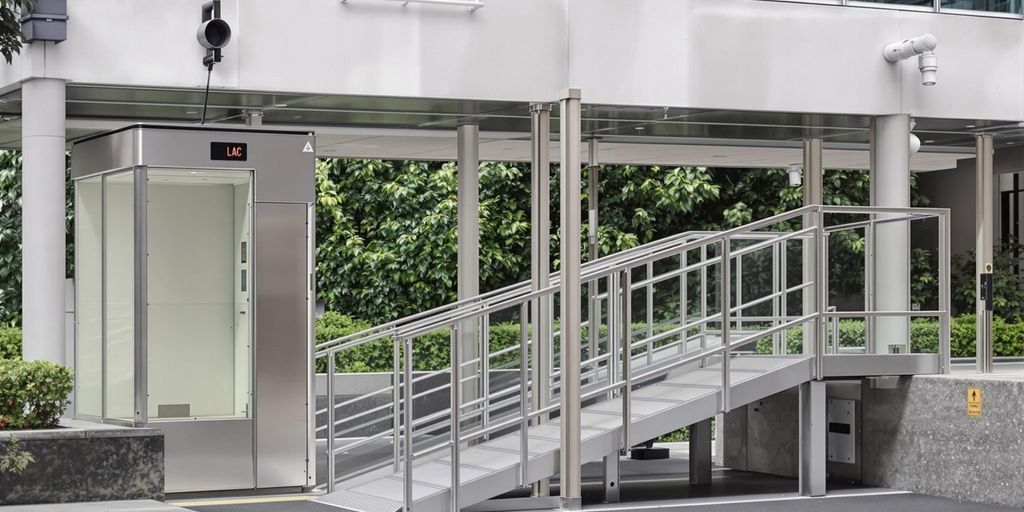How to Maintain Your Wheelchair-Accessible Van in Winter
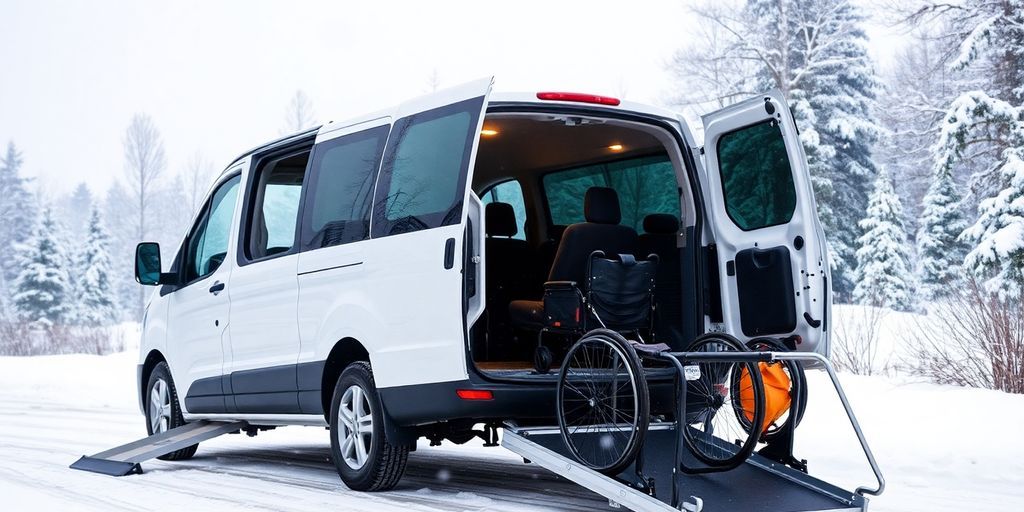
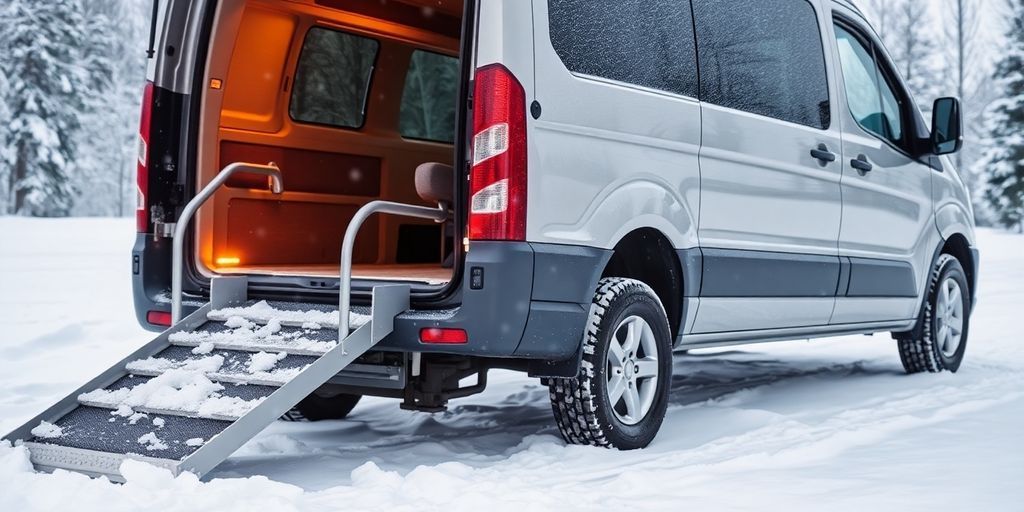
Winter can be tough on your wheelchair-accessible van, but with a little preparation, you can keep it running smoothly. The cold weather brings unique challenges, especially for those who rely on these vehicles for mobility. From icy ramps to battery issues, it's important to stay on top of maintenance to ensure your van is ready for winter travel. Here are some practical tips to help you maintain your wheelchair-accessible van during the colder months.
Key Takeaways
- Inspect your wheelchair ramp and lift regularly to prevent malfunctions.
- Keep tire pressure in check to ensure safe handling on slippery roads.
- Use winter-grade fluids to protect your vehicle's systems from freezing.
- Clear snow and ice from walkways to ensure safe access to your van.
- Pack an emergency kit with essentials for unexpected situations.
Maintaining Your Wheelchair Conversion This Winter
Colder weather can be tough on any vehicle, but when you rely on a wheelchair van, keeping it in good shape is super important. It's not just about getting from A to B; it's about maintaining your independence when the weather outside is frightful. Let's look at some key areas to focus on this winter.
Inspect Your Wheelchair Ramp/Lift
Before the really cold weather hits, give your ramp or lift a good once-over. Lubricating the moving parts is key – think of it like oiling a squeaky door, but way more important. You don't want that thing freezing up on you.
- Make sure there's no salt, dirt, or snow stuck in the mechanism. That stuff can really mess things up.
- Check for any signs of wear and tear. Catching small problems early can prevent bigger headaches later.
- Test it out a few times to make sure it's working smoothly. Better safe than sorry!
Check Tire Pressure Regularly
Tire pressure drops when it gets cold, and that can affect your van's handling and fuel economy. Keep a tire pressure gauge in your van and check the pressure at least once a week.
- Make sure your tires are inflated to the recommended pressure (check the sticker on your doorjamb or your owner's manual).
- Under-inflated tires can wear out faster and even be dangerous.
- Consider using nitrogen in your tires; it's less affected by temperature changes than regular air.
Monitor Battery Performance
Cold weather is hard on batteries. If your van is having trouble starting, it could be a sign that your battery is on its way out.
- Have your battery tested to make sure it's still holding a charge.
- Clean any corrosion from the battery terminals.
- If your battery is more than a few years old, it might be time to replace it. It's better to do it now than get stranded in the cold.
Keeping your wheelchair van in top condition during the winter months is more than just good maintenance; it's about ensuring you can continue to live your life to the fullest, no matter the weather. A little bit of preventative care can go a long way in avoiding breakdowns and keeping you mobile all winter long.
Safe Winter Driving Practices in Wheelchair Vans
Winter driving is tricky for everyone, but when you rely on a wheelchair van, it's even more important to be prepared. You don't want to get stuck! Here's what I've learned about staying safe on the road during the snowy months.
Utilize Vehicle Features
Don't forget about all those features your van has! Your defroster is your best friend – make sure it's working properly. I also prop up my windshield wipers when I know it's going to snow; that way, they don't freeze to the windshield. And if you're lucky enough to have heated seats or a heated steering wheel, use them! It makes a huge difference in staying comfortable. These North GA Mobility vehicles are great for winter.
Choose Appropriate Parking
Where you park can make a big difference. If you can, park in a garage or under a covered area. It keeps the snow and ice off your van, which makes getting in and out so much easier. Plus, it can help prevent your van from not starting in really cold weather. I always try to find a covered parking spot when I'm out and about.
Prepare for Emergencies
It's always a good idea to be prepared for anything, especially in the winter. I keep a small shovel in my van, along with some sand or kitty litter for traction if I get stuck. A blanket, some snacks, and a flashlight are also good to have on hand. You never know when you might need them! Being prepared can save you from a lot of trouble.
Driving in winter can be dangerous, but so can getting from your house to your car in the snow. Before you head out, make sure to clear snow and ice off your ramps, steps, and walkways. While shoveling is the traditional way to remove snow, throwing down a few handfuls of a snow/ice melt product can help prevent slips and falls.
Winterize Your Wheelchair Van
The most important thing you can do to prepare for winter is to winterize your van. It's not hard, and it mostly involves routine maintenance. If you need help, a service team can assist.
Perform Routine Maintenance
Before winter hits hard, give your van a good once-over. This includes checking all the usual suspects: lights, signals, and making sure there aren't any weird noises. Pay special attention to anything that might be affected by the cold, like hoses and belts. Replace anything that looks worn or cracked. This is also a good time to check the vehicle battery and ensure it's in good shape for the cold months ahead.
Use Winter-Grade Fluids
Switching to winter-grade fluids is a must. This means using antifreeze that can handle freezing temperatures, winter-formulated windshield washer fluid (the regular stuff will freeze and crack the reservoir), and making sure your oil is the right viscosity for cold weather. Some people even switch to a thinner oil in the winter to help with cold starts.
Install Snow Tires
If you live in an area with heavy snow or ice, consider getting snow tires. All-season tires are okay, but snow tires provide much better traction in slippery conditions. They have a special tread pattern and rubber compound that grips the road better when it's cold and snowy. It makes a huge difference in handling and braking.
Don't forget to wash the brine/salt off your vehicle to prevent rust and corrosion. If your town or city covers streets with brine or a salt solution before a winter storm, be sure to wash your vehicle. This will help keep your van in good shape for years to come.
Importance of Winter Vehicle Maintenance
Winter vehicle maintenance isn't just a suggestion; it's a necessity, especially for wheelchair-accessible vans. Neglecting upkeep can lead to serious problems, impacting both safety and mobility. Let's face it, nobody wants to be stranded in the cold. Regular maintenance helps prevent breakdowns and ensures your van is ready to handle whatever winter throws its way.
Preventing Rust and Corrosion
Winter brings with it a host of corrosive elements, like road salt and brine. These substances can wreak havoc on your van's undercarriage and body, leading to rust and expensive repairs. Regularly washing your van, especially after driving on salted roads, is crucial. Consider applying a rust inhibitor to protect vulnerable areas. It's a small investment that can save you a lot of money in the long run. Think of it as a winter coat for your van!
Ensuring Safe Mobility
Safe mobility is paramount, especially during winter. Winter conditions can be treacherous, and a well-maintained van is better equipped to handle snow, ice, and freezing temperatures. This includes ensuring your tires have adequate tread, your brakes are functioning properly, and your lights are all working. Don't forget about your wheelchair ramp or lift; keeping it clean and lubricated will prevent malfunctions. A little preparation goes a long way in ensuring you can get where you need to go safely. For example, fuel consumption can increase in winter, so it's good to be prepared.
Maintaining Vehicle Performance
Winter weather can put a strain on your van's engine and other components. Cold temperatures can thicken fluids, making it harder for your engine to start and run efficiently. Regular maintenance, such as oil changes and fluid checks, can help keep your van running smoothly. A well-maintained engine is also more fuel-efficient, saving you money at the pump. Plus, a properly functioning heater and defroster are essential for comfort and visibility during those cold winter months.
Winter vehicle maintenance is about more than just keeping your van running; it's about protecting your investment and ensuring your safety and independence. By taking the time to properly maintain your van, you can avoid costly repairs, prevent accidents, and enjoy reliable transportation throughout the winter season.
Clearing Access to Your Van
Winter weather can make getting in and out of your wheelchair van a real challenge. It's not just about driving safely; it's about making sure you can even reach your van safely. Here's how to keep the path clear:
Shovel Walkways and Ramps
Shoveling is still the most reliable way to clear snow. Focus on creating a wide, even path from your door to your van. Don't forget about ramps! Make sure they're completely clear of snow and ice to prevent slips and falls. It's a good idea to:
- Start shoveling early, before the snow gets packed down.
- Use a shovel that's comfortable for you to handle.
- Take breaks to avoid overexertion.
Use Ice Melt Products
Ice melt can be a lifesaver, especially on those stubborn icy patches. But be careful which type you use. Some ice melts can damage concrete or be harmful to pets. Look for pet-friendly and concrete-safe options. Also:
- Apply ice melt before a storm to prevent ice from forming.
- Spread it evenly, following the product instructions.
- Keep extra on hand for unexpected ice storms.
Regularly Inspect for Hazards
It's easy for hazards to hide under snow and ice. Regularly check your walkways and ramps for things like:
- Uneven surfaces
- Cracks or potholes
- Loose handrails
Address these issues promptly to prevent accidents. It's also a good idea to clear any snow and ice from your van's roof and windows before driving.
Keeping your access points clear is more than just a convenience; it's about maintaining your independence and safety during the winter months. Take the time to prepare and stay vigilant throughout the season.
Emergency Preparedness for Winter Travel
Winter travel in a wheelchair accessible van demands extra caution. It's not just about getting from point A to point B; it's about ensuring you're prepared for the unexpected. I remember one time, I got stuck in a snowdrift for hours, and it was a real wake-up call. Now, I always make sure I'm ready for anything.
Pack an Emergency Kit
An emergency kit is essential for winter travel. It's your lifeline if things go wrong. Here's what I always include:
- A first-aid kit with all the basics.
- Jumper cables – you never know when you might need them.
- A flashlight with extra batteries. Headlamps are great too, because they free up your hands.
- Non-perishable food like protein bars or canned goods.
- Water – and make sure it won't freeze!
Keep Spare Clothing and Blankets
Layers are your friend in winter. Always keep extra warm clothing in your van. I'm talking:
- Hats
- Gloves
- Scarves
- A warm blanket or two
Hypothermia is a real risk if you get stranded. Having these items can make a huge difference in staying warm and safe while waiting for help. It's also a good idea to have some hand and foot warmers in your kit.
Have a Charged Phone Ready
In today's world, a charged phone is a must-have. But don't just rely on your phone. Consider these points:
- Bring a portable charger or power bank.
- Keep a car charger handy.
- Make sure someone knows your travel plans and expected arrival time.
- In areas with spotty service, consider a satellite communication device.
Having a way to call for help can be life-saving. I also keep a list of emergency numbers in my glove compartment, just in case my phone fails me.
Regular Maintenance Checks
It's easy to forget about routine maintenance, especially when winter weather hits. But trust me, staying on top of things can save you a lot of headaches (and money!) down the road. Regular checks are super important for keeping your wheelchair van in tip-top shape during the harsh winter months.
Schedule Seasonal Inspections
Think of seasonal inspections as a check-up for your van. Mechanics will look at all the important stuff, like your brakes, fluids, and wheelchair tie-down straps. It's a good way to catch small problems before they turn into big, expensive ones. Plus, they can make sure your conversion is still working properly.
Keep Up with Oil Changes
Fresh oil is like a spa day for your engine. It keeps everything running smoothly and prevents wear and tear. Cold weather can be tough on your engine, so don't skip those oil changes! I try to stick to the schedule in my owner's manual, but sometimes I get busy and forget. Setting a reminder on my phone has helped a lot.
Monitor Fluid Levels
Your van has a bunch of different fluids that need to be at the right levels to work properly. We're talking about things like coolant, brake fluid, power steering fluid, and windshield washer fluid. Check them regularly and top them off as needed.
Low fluid levels can cause all sorts of problems, from overheating to brake failure. It only takes a few minutes to check, and it could save you from a major breakdown. I usually check mine every couple of weeks, just to be safe.
Here's a quick checklist I use:
- Coolant: Check the level in the reservoir when the engine is cold.
- Brake Fluid: Make sure it's between the minimum and maximum lines.
- Windshield Washer Fluid: Fill it up before a big storm!
Keeping up with regular maintenance checks is super important for your equipment. These checks help catch problems early and keep everything running smoothly. Don’t wait until something breaks! Visit our website today to learn more about how you can keep your gear in top shape.
Wrap-Up: Keep Your Van Ready for Winter
So, there you have it. Winter can be tough on your wheelchair-accessible van, but with a little effort, you can keep it in good shape. Regular checks on your tires, battery, and ramp can make a big difference. Don't forget to clear the snow and ice from your paths and ramps, too. And hey, having an emergency kit is always a smart move. It’s all about staying safe and comfortable while you’re out and about. If you need help, don’t hesitate to reach out to a professional. Stay warm and drive safe this winter!
Frequently Asked Questions
What should I check on my wheelchair van before winter starts?
Before winter, inspect your ramp, tires, and battery. Make sure everything is clean and in good working order.
How can I keep my wheelchair van's ramp from freezing?
Keep the ramp clean from snow and ice, and lubricate the moving parts regularly to ensure it works smoothly.
Is it necessary to use snow tires on my wheelchair van?
Yes, snow tires can provide better grip and control on icy roads, making it safer to drive during winter.
What can I do to prevent rust on my wheelchair van?
Wash your van regularly to remove salt and brine that can cause rust. Also, consider applying a protective coating.
How can I prepare for emergencies while traveling in winter?
Pack an emergency kit with items like blankets, a flashlight, and a phone charger. This will help you stay safe in case of unexpected situations.
What regular maintenance should I perform during winter?
Check your oil, fluid levels, and schedule seasonal inspections to keep your van running well throughout winter.
First Responders & Military Discount + VA Approved
PRODUCTS AND SERVICES
North Georgia Mobility | All Rights Reserved | Powered By Flypaper | Privacy Policy

